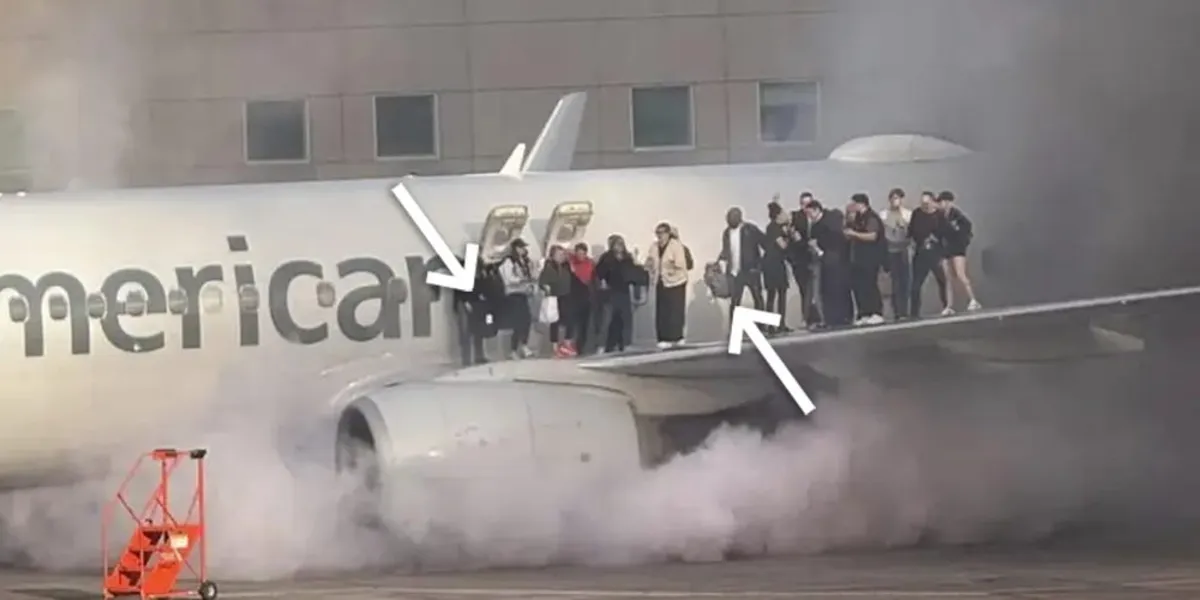
On a recent Thursday, an American Airlines jet experienced a serious incident as it caught fire upon landing in Denver. During the evacuation, many passengers were seen ignoring safety protocols by bringing their carry-ons with them, a decision that not only compromises personal safety but also risks the lives of others. Such actions can slow down evacuations significantly, which is a crucial factor in emergency situations.
Flight attendants continuously emphasize the importance of abandoning personal belongings during emergencies in their pre-flight briefings. The aviation industry has strict regulations that require cabin crews to evacuate the aircraft within 90 seconds, assuming that all passengers will follow instructions. However, an aviation expert, Geoffrey Thomas, highlighted that when passengers insist on taking their bags during evacuations, it creates dangerous bottlenecks that can delay the process. He stated, "You've got to get all the passengers out in 90 seconds. Now, we're seeing evacuations taking six and seven minutes because passengers insist on taking their bags."
The evacuation on Thursday was prompted after the flight crew reported engine vibrations while en route from Colorado Springs to Dallas/Fort Worth. The aircraft was diverted to Denver, where it ultimately caught fire after landing. According to reports from Denver International Airport, 12 individuals out of the 172 passengers on board required hospitalization for minor injuries, further demonstrating the potential consequences of improper evacuation procedures.
Ignoring safety regulations during evacuations can have dire consequences. A tragic example occurred in 2019 when a Russian airliner crash-landed in Moscow, resulting in the deaths of 41 out of 78 passengers and crew members. Many survivors were observed fleeing the aircraft with their carry-ons, a behavior that experts believe contributed to the chaotic evacuation and the increased death toll.
In contrast to the tragic Russian incident, there have been successful evacuations that highlight the importance of following safety protocols. For example, in January 2024, a Japan Airlines jetliner collided with a smaller aircraft on the Tokyo runway, yet all 379 people on board survived, largely because passengers abandoned their bags. Similarly, during a Delta Air Lines crash-landing in Toronto, flight attendants urged passengers to leave their belongings behind, resulting in a successful evacuation without fatalities.
Despite the overall safety of air travel, with fatal crashes being extremely rare, recent months have seen an uptick in incidents and near-misses. When emergencies occur, it is critical for passengers to heed the instructions of flight attendants and prioritize their safety over personal belongings. Remember, while personal items can be replaced, lives cannot. Ensuring a swift evacuation can make all the difference in life-or-death situations.